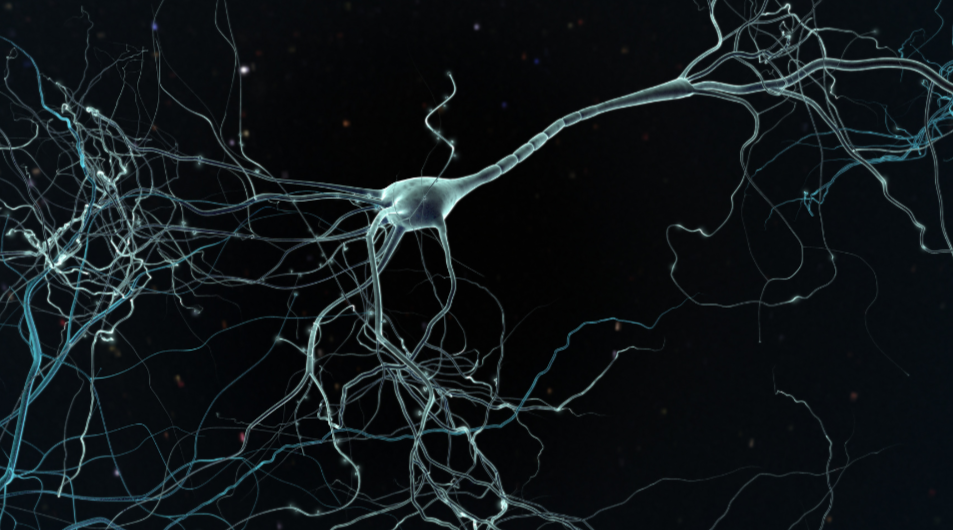Napoleon Hill once said, 'If You Cannot Do Great Things, Do Small Things In A Great Way'.
Our Focus In Creating Each Buddy
-
Neuroscience
Learn the fundamentals of neuroscience and how it influences your responses.
-
Psychology
Gain insight into how different states of mind can influence your thoughts and actions.
-
Emotional Intelligence (EI)
Develop emotional intelligence and self-regulation to overcome obstacles and improve communication skills.

Let's Connect It!
Neuroscience | Psychology | Emotional Intelligence
Think of your nervous system like your own personal security system, always on the lookout to keep you safe. It's shaped by all those little moments from your childhood, influencing how you react as an adult. When life throws challenges your way, like trauma or feeling overwhelmed, it’s crucial to learn coping strategies, especially for parents. This helps us teach our children how to manage their incredible nervous systems and also sees we don't mistakenly pass down any historical trauma!
Lakunakai is here to support you with resources that make recovering from trauma or dealing with an overstimulated nervous system feel a bit more manageable. Start your journey by meeting the Black Leopard, who helps you find your footing and feel grounded. Once you're steady, the Moon Jellyfish comes along to help you handle those big emotions. When you're ready, the Sea Turtle encourages you to embrace the present, and the Fox teaches you to reframe your thoughts in a healthier way.
Remember, it's okay to take it slow and be gentle with yourself. Progress happens one step at a time, and if you start this journey early with your children, they'll be well-prepared to manage their nervous systems effectively.
Want More Information On Our Focus?
Dive a Bit Deeper into the Topics Below!
Neuroscience
Neuroscience is such a fascinating field of science! It is the study of how the nervous system develops, its structure and what it does. It covers the whole nervous system with a primary focus on the brain.
If we understand some basic information of how the brain is processing information, given it’s like a central computer coordinating all activities of the body, it can help us better connect our thoughts and body so we can adapt and respond better to different experiences.
The brain controls what you think and feel, how you learn and remember, and more. It enables the body to respond and adapt to changes both inside and outside the body. But how does it do this?
At a high level:
- The nervous system includes the brain, spinal cord, and a complex network of nerves.
- Its job is to send messages back and forth between the brain and the body with the main objective of keeping you safe.
- It takes information from the environment by using our five basic senses (taste, hearing, sight, smell, touch), processes that information with the help of our ‘to date’ life experiences and perception, and then responds.
What’s important to know is perception and sensory experience of the world becomes a huge conversation here.
Sensation is non-negotiable and is basically the body trying to perceive what’s happening from the physical world whereas perception is negotiable and is what a person chooses to pay attention to.
The outcome of taking in information and processing it is often seen through one's emotions as this is the body's way of helping the brain and nervous system to match the internal and external environment.
If we take it a step further, depending on what a person has been through, their nervous system may or may not be able to respond to the experience they find themselves in. In the event a person is unable to take in and cope with an experience then they are likely experiencing a traumatic experience. What this means is that the nervous system is so overloaded it is unable to function as it usually would and one may need some help. This is often referred to as trauma.
Psychology
The human mind goes into three main ego states of mind which reflect a person’s emotional state.
We can move rapidly between them, or we can get stuck in a particular ego state of mind for some time but these all carry a purpose and are consistent patterns of feeling, thinking and behavior that can be categorized as parent, adult, and child ego states of mind. They are fundamental in understanding how a person shows up in the world.
- The parent ego state of mind is behaviors, thoughts and feelings copied from parents or parental figures. This state of mind is often unconscious behavior which simply means an individual’s complex mental activities within themselves proceed without their awareness.
- The child ego state of mind is behaviors, thoughts and feelings replayed from childhood.
- The adult ego state of mind is behaviors, thoughts and feelings which are in direct response to the here and now.
Recognizing how your upbringing shapes your emotional state and influences unconscious behavior is key. Choosing to consciously respond to situations opposed to unconsciously responding also becomes key.
That being said, having an understanding of how our ego states of mind operate can be beneficial in teaching our brain to better regulate emotions, commonly known as 'emotional intelligence'. We do this by learning ways to consciously think and by interrupting patterns that are no longer useful. Additionally, given we are now a bit wiser, we can choose to engage in communication with others simply knowing they too are functioning in a similar manner but with a different upbringing.
Emotional Intelligence
Emotional intelligence is crucial for personal growth and recovery. It provides the ability to process emotions and establish healthy relationships.
To understand emotional intelligence you must first understand the difference between self-regulation and emotional intelligence.
Self-Regulation is the process of actively managing how we feel about our emotions, thoughts, events, experiences, and behaviors.
Emotional Intelligence is about effectively managing your own emotions and understanding the emotions of others.
In simpler terms, self-regulation allows us to practice emotional intelligence and helps us avoid being overwhelmed by our emotions.
So how is emotional intelligence challenged during Trauma?
You will recall that during a traumatic event, the brain physically changes where emotions become highly reactive. The brain also narrows and is primed to respond reflexively (meaning automatically or without conscious thought) to ensure survival. This is where the disconnect happens and one may need some help to get out of the fight, flight, freeze, fawn or flop response.
When the brain is primed to respond reflexively, we need to learn how to teach the brain to respond in a reflective manner (meaning using careful thinking with conscious thought) without becoming stuck in negative cycles to regain regulation and to adapt well. This is basically teaching the brain new patterns while it learns that we are safe but it requires understanding, education, time, coping tools and a lot of effort by the person and/or family that has experienced the traumatic event or for those that have to work with an overstimulated nervous system regularly. The hard part is when we need to trick the brain in a way so we can be strong for loved ones, helping them feel safe when that may not be the case - like when your child is up against something that is life threatening.
Your perception and sensory experience of the world without a doubt is going to be challenged and in the end you will become a new version of yourself. Using reflective responses and stepping into each of your emotions while navigating the 5 stages of trauma (denial, anger, bargaining, depression, acceptance) will build on emotional intelligence.
Learn, Regulate, Repeat!
People learn in different ways. Some learn by observation, while others learn through listening, exploring, experimenting, and asking questions. Children learn a lot by observing their parents and caregivers, even in difficult situations.
At Lakunakai, our main emphasis is on the fundamental foundational knowledge derived from neuroscience, psychology and emotional intelligence.
We seek to provide understanding so we develop healthy patterns all while supporting the nervous system.
